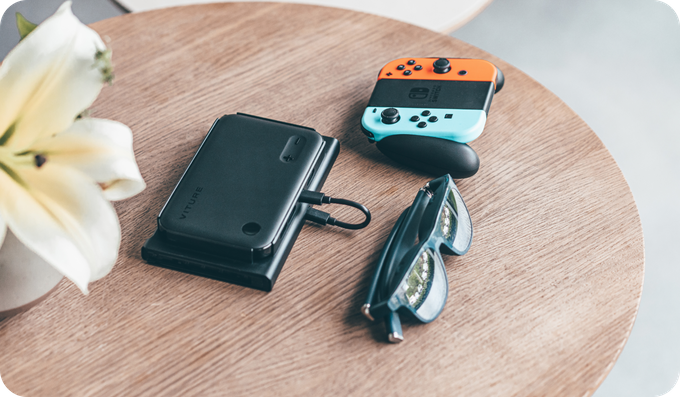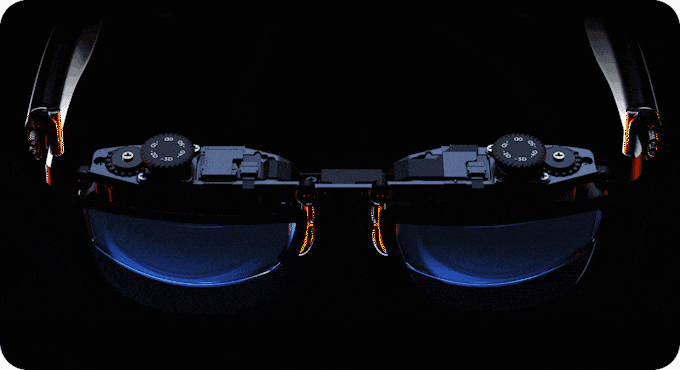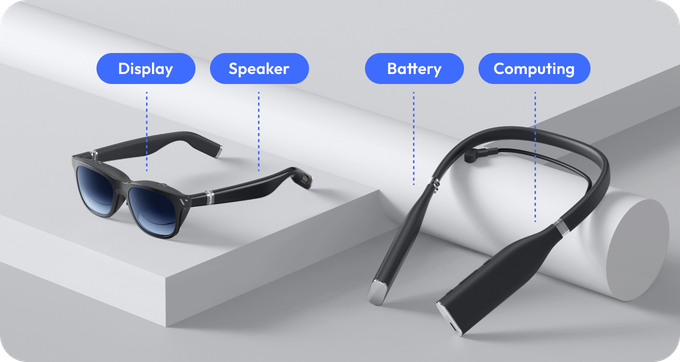These XR glasses for gaming just racked up $2.5 million on Kickstarter
Viture One gaming glasses raise more money on Kickstarter than Oculus Rift

Here at Tom’s Guide our expert editors are committed to bringing you the best news, reviews and guides to help you stay informed and ahead of the curve!
You are now subscribed
Your newsletter sign-up was successful
Want to add more newsletters?

Daily (Mon-Sun)
Tom's Guide Daily
Sign up to get the latest updates on all of your favorite content! From cutting-edge tech news and the hottest streaming buzz to unbeatable deals on the best products and in-depth reviews, we’ve got you covered.

Weekly on Thursday
Tom's AI Guide
Be AI savvy with your weekly newsletter summing up all the biggest AI news you need to know. Plus, analysis from our AI editor and tips on how to use the latest AI tools!

Weekly on Friday
Tom's iGuide
Unlock the vast world of Apple news straight to your inbox. With coverage on everything from exciting product launches to essential software updates, this is your go-to source for the latest updates on all the best Apple content.

Weekly on Monday
Tom's Streaming Guide
Our weekly newsletter is expertly crafted to immerse you in the world of streaming. Stay updated on the latest releases and our top recommendations across your favorite streaming platforms.
Join the club
Get full access to premium articles, exclusive features and a growing list of member rewards.
Viture One is a new name in the gaming world that has managed to kick up a lot of dust on crowdfunding platform — Kickstarter. So much so that Virture One has surpassed the Oculus Rifts’ massive fundraising efforts on the same platform with its pair of mixed reality glasses..
Viture is a San Francisco based start-up that has managed to raise a whopping $2.5 million in a little more than over six weeks, overshooting their original $20,000 goal. What’s even more surprising is that backing this large sum are just over 4,000 people compared to 9,522 that backed the Oculus Rift during that product's crowd-funding campaign more than six years ago.
The numbers point to a very bright future ahead for Viture One. And we should tell you, these are no ordinary mixed reality glasses.
Firstly, they look like stylish pairs of sunglasses and come in three — black, blue and white colors. They have been designed by London design studio Layer that is known for its designs for Bang & Olufsen.

Don the glasses, and you will be able to stream games and media from anywhere. Even console games can be streamed using remote play apps like PlayStation Remote Play and Xbox Cloud Gaming. The Viture One includes support for both Xbox and PlayStation controllers. PC games can also be streamed using Steam Link, Shadow or Parsec.
The glasses run on Android and streaming apps like Disney Plus, Apple TV Plus and HBO Max come preinstalled. The device also supports 3D movies.
For Switch users, a special attachment combines a HDMI dock and a battery pack. There’s a “multiplayer mode” that will allow two Viture One owners to play together using the two JoyCons.
Get instant access to breaking news, the hottest reviews, great deals and helpful tips.

Viture makes lofty claims about the display through the tiny glasses, contending that the image quality from the glasses surpasses any VR headset. The lenses combine to form a 1080p virtual screen, and Viture says the pixel density is equivalent to a Mac Retina display. If true, this could be revolutionary in the gaming world.
There are two display modes: immersive and ambient. Immersive will let the virtual screen take over your field of vision while ambient mode will minimize the screen to a corner to let you see the real world through the glasses.

There are directional speakers on the glasses too, but Viture has not revealed who they have partnered with for audio, only claiming that it's a “prestigious speaker company.”

There is also a special neckband, on the hardware front. It’s like having a computer around your neck. The neckband contains a control pad for the Android-based operating system. Viture seems to solve one of the most plaguing problems in the AR community — the headsets or glasses are small enough but the rest of the paraphernalia is difficult to conceal and often pretty bulky.
Viture One costs $429 for early bird customers on Kickstarter, with a version that includes a neckband going for $529. They promise to ship their first units in October this year.
With news brewing around Meta AR glasses that could come in 2024 and Apple’s mixed reality headset, we will have to see how the Viture One measures up to those products from higher-profile companies. For now, we just hope Viture One lives up to its claims.

Sanjana loves all things tech. From the latest phones, to quirky gadgets and the best deals, she's in sync with it all. Based in Atlanta, she is the news editor at Tom's Guide. Previously, she produced India's top technology show for NDTV and has been a tech news reporter on TV. Outside work, you can find her on a tennis court or sipping her favorite latte in instagrammable coffee shops in the city. Her work has appeared on NDTV Gadgets 360 and CNBC.
 Club Benefits
Club Benefits





